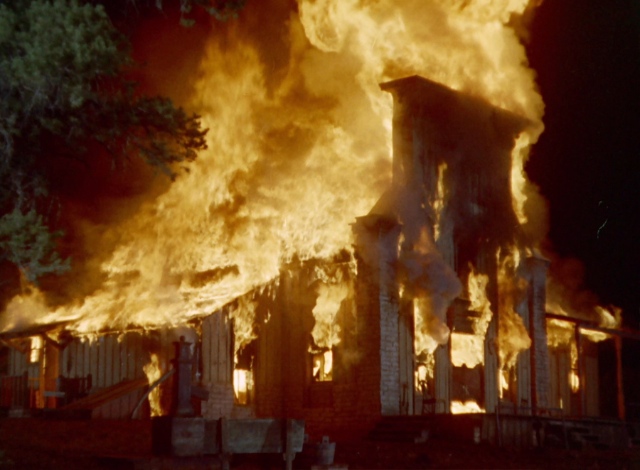
“You think you had it rough? I didn’t find this place, I had to build it.”
-Vienna (Joan Crawford), Johnny Guitar
The word “home” conjures images of an ethereal space, with pies on windowsills and white lace curtains blowing in the breeze. It’s where the heart is. Yet as Vienna reminds us in Nicholas Ray’s Johnny Guitar (1954), homes don’t merely come into being, but are works of labour—sometimes of love, sometimes of servitude. Moreover, they can also be hostile places. In the past few months, several reports and studies have pointed to the lack of female representation in the film and television work force, painting portraits of industries that are far from being cozy abodes for women. The USC Annenberg School for Communication and Journalism reported a decline in speaking parts for women in the 100 top-grossing films in 2012 to 28.4% from 32.8% in 2009. The gender gap among film writers remains higher than in television writing rooms or on The New York Times best-selling novels list. This summer, there was only one mainstream release that starred (and happened to be written by) women, The Heat. And then there is the dire lack of female film critics.
Yet it’s not all doom—see our next call for papers for more on that—and gloom. Given cynicism is the easiest route, we’ll take the hard road and emphasize the successes. In this issue, we draw attention to the space of home, be it the lack thereof, how it relates to “world cinema,” or in the constructed domestic space in literary adaptations and sci-fi. Issue two also features an interview with acclaimed director and producer Athina Rachel Tsangari. Speaking candidly about the nature of her work, she further addresses forms of colonialism she sees in the industry, be it in the qualifer of “national cinema” or the ghettoization of “female filmmaker.” In his piece on Andrea Arnold’s Wuthering Heights, Andrew Gilbert looks at this filmmaker’s interpretation of hearths and home life. Mallory Andrews examines Todd Haynes’ Safe in the light of Barbara Ehrenreich’s writings, producing a nuanced critique of supposed “self-help” mentalities. Adam Cook sheds light on Kathleen Shannon, an underappreciated Canadian talent. One of the most prolific directors to come out of the National Film Board of Canada, her work with Studio D was overtly feminist, allowing the voices of marginalized women to be heard. Tina Hassannia looks at two representations of female homelessness in Agnès Varda’s Vagabond and Kelly Reichardt’s Wendy and Lucy. Last, Lindsay Jensen takes down the mommy issues in Joseph Kosinski’s recent Oblivion.
For the first time, cléo features writing by men. Excluding male voices from the journal was never an intention, as we share the space of film writing—our home—with them. That said, we will always endeavour to ensure self-identifying female writers take prominence in order to establish a place where such voices can grow. Like Vienna, we didn’t find this place, but we’re trying to build it.
– Kiva Reardon
July 25, 2013





